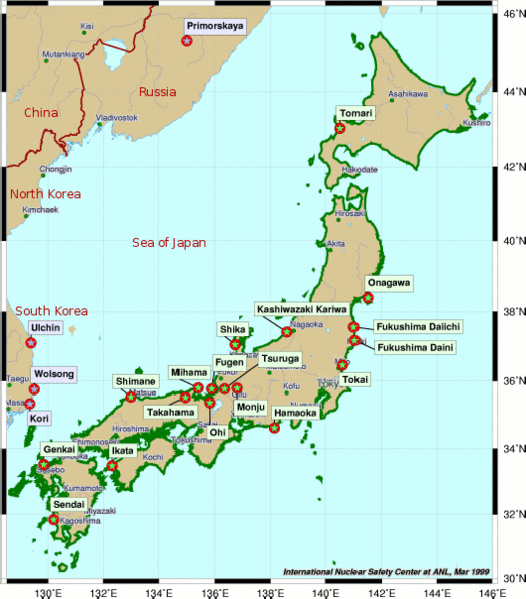
Nuclear Taboo
The historical record is full of references to nuclear weapons and nuclear power, yet I cannot find any current Glaucus projects exploring the potential of atomic and nuclear research. When I asked my superior why this is so, she merely smiled and told me to figure it out myself. I think I have, at least partly.
The first reason has to do with the shifting public opinion that occurred following some pre-War nuclear disasters. The Fukushima Daiichi nuclear disaster is an excellent example of this.
On 11 March 2011 a magnitude 9.0 earthquake struck off the coast of Japan, followed by a tsunami that slammed the country’s eastern coast, destroying communities and taking the lives of tens of thousands of people. The event led to the biggest nuclear disaster since Chernobyl in 1986. It also exposed serious failures in the Japanese system for ensuring the safety of nuclear reactors.
The earthquake caused the loss of external power at the Fukushima Daiichi nuclear power plant, a site with six reactors. The subsequent tsunami flooded the plant’s back-up diesel generators, causing complete loss of power and leading to a failure of the cooling systems. Due to the lack of cooling, the nuclear fuel was damaged and melted in reactors #1, #2 and #3. The build-up of hydrogen gas due to the damaged fuel resulted in hydrogen explosions in these three units and damaged the containment structure in reactor #4.
…
Outside Japan, the effects of the disaster were felt around the world. Many nations re-evaluated the ability of their own nuclear reactors to withstand natural disasters. Germany has shut down some of its reactors and has vowed to abandon nuclear energy entirely.
The Fukushima disaster raised serious questions about the myth of nuclear safety. In Japan, it revealed considerable corruption in the nuclear power sector, including efforts to mislead the public, as well as repeated examples of cronyism between power companies and the government agencies that regulate them.
Public support for nuclear power in Japan has largely eroded. Currently, over 90% of Japan’s 54 reactors are offline. All could by offline by May 2012, if none is restarted. Many local government officials have said they will not grant approval for restarting reactors. Contrary to the cries of the nuclear industry, there have been no significant problems with the electricity supply, and Japan has shown that it can survive without nuclear power.
– Fukushima Nuclear Crisis, February 2012, Greenpeace.
Even before the War and the horrible effects of nuclear weapons, nuclear power had already become anathema. All of the European Union soon followed Germany’s lead, disavowing nuclear power and research. In the course of a few years the rest of the world followed suit, until only the United States, Russia, China and a few countries trying to prove themselves, like North Korea and Pakistan, had active nuclear programs. Even then, rallies and protests against their nuclear power plants were widespread. There was even an attempted bombing of the Palo Verde Nuclear Generating Station in the state of Arizona in the US. Sadly, the taboo against nuclear energy would not be enough to prevent the use of nuclear weaponry that caused the Long Winter.
I now understand why nuclear research stopped. I do not understand why Glaucus has never undertaken any research on nuclear energy. I can’t even find reference to any projects to clean up residual radiation in the environment, yet it is almost common knowledge that one of Minerva’s first missions was to clean the air and water around the base of radioactive particles to permit farming. Instead, I find a suspicious absence of any entry mentioning nuclear energy. Interesting. I shall have to investigate this further.